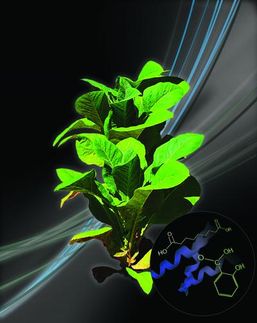Cornell ecologist shares in federal grant to study how a species might affect its own evolution
A Cornell researcher will take part a multi-institutional $5 million project funded by the National Science Foundation (NSF) to investigate how changes to an ecosystem can influence evolution in a species. The project also will examine how a species might alter its environment, and in that way, affect its own evolution.
The NSF Frontiers in Integrative Biological Research grant addresses major themes in biology that require cross-linking biological subdisciplines. The project, led by University of California-Riverside evolutionary biologist David Reznick, will begin in January and will examine stream ecosystems in Trinidad and the evolution of native guppies. The ecological component of this grant will be co-led by Alex Flecker, Cornell associate professor of ecology and evolutionary biology. Cornell's portion of this grant is $580,000.
The experiments in Trinidad will be set up in mountain streams, where waterfalls create barriers between guppies and such predators as wolffish and pike cichlids (an aggressive 6 to 10-inch streamlined fish native to South America). The researchers plan to introduce guppies to upstream areas separated by waterfalls, where no guppies exist. They will then monitor the ecosystems, measuring how nitrogen and other essential nutrients cycle, as well as how food resources shift when new species are introduced. The researchers also will measure fish growth rates and such life history traits as body size at maturity, frequency of reproduction, number of offspring and the age the guppies start reproducing, which may reveal evolution in the fish.
The presence of guppies can alter the environment by changing food resource levels, which in turn, can feed back to influence evolution. The researchers also will examine the effects of guppies on Hart's killifish, another fish in Trinidad streams. "We'll study ecological interactions and whether co-evolution in the killifish occurs when guppies are introduced," said Flecker. Guppies and killifish compete for food and prey on each other's young.
In addition to monitoring how guppies influence ecosystem processes, the Cornell group will set up experiments to explore whether food availability influences evolution. For example, they will manipulate tree canopies to increase light availability and measure whether changes in primary production and resources in the streams influence guppies. Reznick's team will study the evolutionary changes.
Most read news
Organizations
Other news from the department science

Get the life science industry in your inbox
By submitting this form you agree that LUMITOS AG will send you the newsletter(s) selected above by email. Your data will not be passed on to third parties. Your data will be stored and processed in accordance with our data protection regulations. LUMITOS may contact you by email for the purpose of advertising or market and opinion surveys. You can revoke your consent at any time without giving reasons to LUMITOS AG, Ernst-Augustin-Str. 2, 12489 Berlin, Germany or by e-mail at revoke@lumitos.com with effect for the future. In addition, each email contains a link to unsubscribe from the corresponding newsletter.





















































